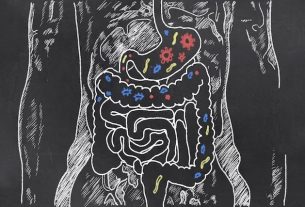Autism nutrition should be healthy and varied, including natural foods such as fresh fruits and vegetables, whole grains, legumes, dairy products, proteins and healthy fats.
A balanced diet is important for the development and growth of children with autism spectrum disorder (ASD), as well as helping to prevent situations such as constipation, nutrient deficiencies, obesity or cardiovascular diseases.
There are also some types of diets that may be recommended for autism, such as the SGSC diet, which consists of excluding foods with gluten and casein from the diet. However, this diet should only be recommended for people with food intolerances or allergies.

How should the diet be
Some recommendations for nutrition in autism are:
1. Prioritize fruit consumption
It is essential to include 2 to 3 portions of fresh fruit per day, such as apples, pears, bananas, grapes and oranges, which can be distributed at breakfast, morning snack and afternoon snack, for example.
Fruits are rich in vitamins and minerals, nutrients that are essential for the formation of teeth and bones, preventing anemia, promoting adequate growth and strengthening the immune system.
2. Consume protein daily
Proteins, such as fish, eggs, chicken, beef and tofu, should be consumed daily. This is because proteins act on physical and mental growth and development, strengthen the immune system and regulate the functions of the nervous system. See all the properties of proteins.
3. Avoid processed foods
It is important to avoid processed foods, because they are generally rich in sugar, fat and chemical additives that encourage the adoption of bad eating habits and can cause obesity, diabetes and other health problems.
Some examples of processed foods are ice cream, pizza, hamburgers, fried foods, sauces, soft drinks, ready-made seasonings and sauces, chocolate milk, sausages, hot dogs and bacon.
4. Consume vegetables daily
Vegetables, such as tomatoes, chayote, carrots, pumpkin and lettuce, for example, should be offered daily and at least at lunch and dinner.
These foods are rich in fiber that increases stool volume and stimulates normal bowel movements, helping to prevent constipation. Furthermore, vegetables are rich in vitamins, minerals and antioxidants.
5. Eat whole grains
Whole grains, such as brown rice, whole wheat pasta, quinoa, amaranth, whole grain bread, corn and oats, are essential as they provide energy for growth, development and vital body functions, such as breathing, brain and heart functions.
Fiber, present in good quantities in whole grains, is important for balancing blood sugar levels and increasing bowel movements, preventing diabetes and constipation.
6. Consume healthy fats
Healthy fats, such as omega 3, omega 6 and omega 9, have anti-inflammatory and antioxidant effects, helping to improve mood, memory and cognition, as well as preventing diseases such as obesity and diabetes.
Healthy fats should be consumed daily and are present in foods such as olive oil, Brazil nuts, walnuts, chia seeds and pumpkin seeds.
7. Drink plenty of water
Drinking plenty of water throughout the day is important to improve blood circulation, prevent constipation, maintain heart, brain and muscle functions and strengthen the immune system. See the amount of water indicated for each person.
Diet menu for autism
The following table provides an example of a 3-day menu for autism:
It is important to remember that this is just an example of a menu, which may vary depending on each person’s preferences and nutritional needs. Therefore, it is recommended to consult a nutritionist to carry out a complete clinical assessment and develop a dietary plan suited to individual needs.
Furthermore, it is also important to practice physical activities regularly, such as dancing, walking or swimming. This is because physical exercise helps maintain or lose body weight, stimulates the production of hormones that generate well-being and reduces stress, in addition to promoting social interactions.
Other feeding tips
People with autism may have food compulsions or aversions. Therefore, some tips for improving your diet are:
- Offer options for the child to choose from, because this encourages children to control their meals, in addition to making their diet more varied;
- Make creative and/or fun preparations, like dishes with faces drawn with ingredients of different colors. This helps make the child more comfortable with eating;
- Avoid discussing or forcing the child to eat new foods, as it can cause stress. Thus, you can observe the food together with the child and then suggest that they smell and/or touch it. When you feel that the child is ready, suggest licking or tasting the food;
- Avoid classifying foods as “good” or “bad”, because this can be interpreted literally and cause greater stress;
- Avoid reward schemes, as it can increase preference for certain foods and cause aversion to new or different foods;
- Create menus, with meal times and food groups for the week.
However, if the child has many aversions to consuming certain foods, it is advisable to consult the pediatrician to investigate possible allergies or food intolerances.
Use of supplements
The use of supplements may be recommended by the doctor for people with autism, especially in cases of nutritional deficiencies, constipation, reflux, allergies or food intolerances.
Some supplements that may be prescribed by your doctor are probiotics, calcium, vitamin D, vitamin B12 and folic acid.
What is the SGSC diet?
The SGSC diet consists of removing foods rich in gluten, such as wheat, barley and rye, and those rich in casein, which include milk and dairy products, from the diet. Furthermore, in some cases it may also be recommended to reduce the consumption of sugar and fructose, as well as other foods that may cause allergies or sensitivity in the child.
This is because this diet is believed to balance the health of the intestine and nervous system, improving sleep, concentration and communication in people with autism spectrum disorder, making it one of the most researched dietary therapies in this area.
However, the SGSC diet may increase the risk of nutritional deficiencies, and there is still no scientific evidence on the benefits of this diet for people with autism spectrum disorder. Therefore, it is advisable to always consult a nutritionist to carry out a complete assessment and prescribe the most appropriate diet according to individual needs.

Sign up for our newsletter and stay up to date with exclusive news
that can transform your routine!
Warning: Undefined array key "title" in /home/storelat/public_html/wp-content/plugins/link-whisper-premium/templates/frontend/related-posts.php on line 12
Warning: Undefined array key "title_tag" in /home/storelat/public_html/wp-content/plugins/link-whisper-premium/templates/frontend/related-posts.php on line 13



